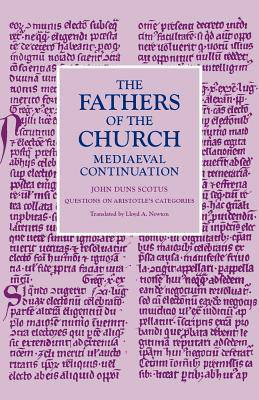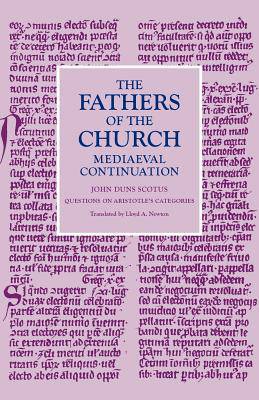
Door een staking bij bpost kan je online bestelling op dit moment iets langer onderweg zijn dan voorzien. Dringend iets nodig? Onze winkels ontvangen jou met open armen!
- Afhalen na 1 uur in een winkel met voorraad
- Gratis thuislevering in België vanaf € 30
- Ruim aanbod met 7 miljoen producten
Door een staking bij bpost kan je online bestelling op dit moment iets langer onderweg zijn dan voorzien. Dringend iets nodig? Onze winkels ontvangen jou met open armen!
- Afhalen na 1 uur in een winkel met voorraad
- Gratis thuislevering in België vanaf € 30
- Ruim aanbod met 7 miljoen producten
Zoeken
Omschrijving
This work is the first English translation of Scotus's commentary on Aristotle's Quaestiones super Praedicamenta. Although there are numerous Latin commentaries on Aristotle's Categories, Scotus's Questions is one of the few commentaries on the Categories written in the thirteenth century covering all of Aristotle's text, including the often neglected post-praedicamenta, and the only complete Latin commentary available in English. Moreover, unlike many of the commentaries, Scotus's text is one of the last commentaries to be written before the nominalist reduction of the categories to substance and quality. The question format allows Scotus a great deal of liberty to discuss the categories in detail, as well as matters that are only remotely raised by the text. Altogether, the forty-four questions cover the following subjects: questions 1-4 are prolegomena to the work itself and raise the question of its subject matter as well as whether there can be a science of the categories; questions 5-8 deal with equivocals, univocals, and denominatives; questions 9-11 discuss Aristotle's two rules regarding predication and the sufficiency of the categories; questions 12-36 discuss the four main categories treated by Aristotle, namely, substance, quantity, relation, and quality; and the remaining eight questions discuss the post- praedicamenta.
Specificaties
Betrokkenen
- Auteur(s):
- Uitgeverij:
Inhoud
- Aantal bladzijden:
- 352
- Taal:
- Engels
- Reeks:
Eigenschappen
- Productcode (EAN):
- 9780813231549
- Verschijningsdatum:
- 1/07/2014
- Uitvoering:
- Paperback
- Formaat:
- Trade paperback (VS)
- Afmetingen:
- 140 mm x 216 mm
- Gewicht:
- 426 g

Alleen bij Standaard Boekhandel
+ 145 punten op je klantenkaart van Standaard Boekhandel
Beoordelingen
We publiceren alleen reviews die voldoen aan de voorwaarden voor reviews. Bekijk onze voorwaarden voor reviews.











